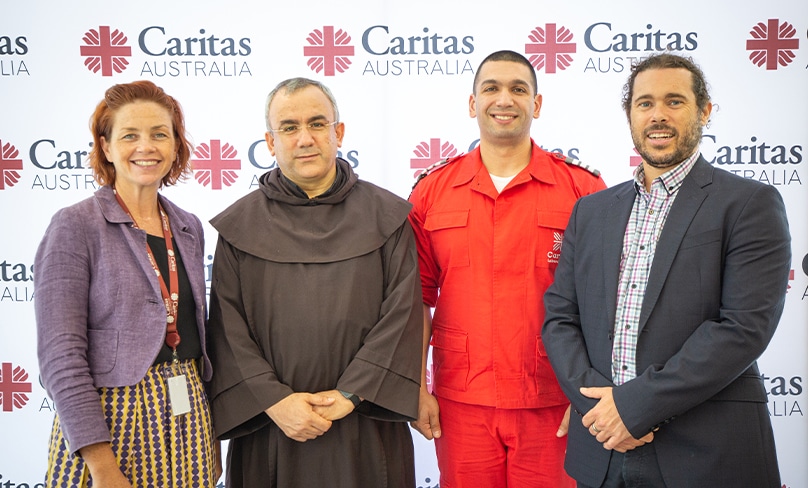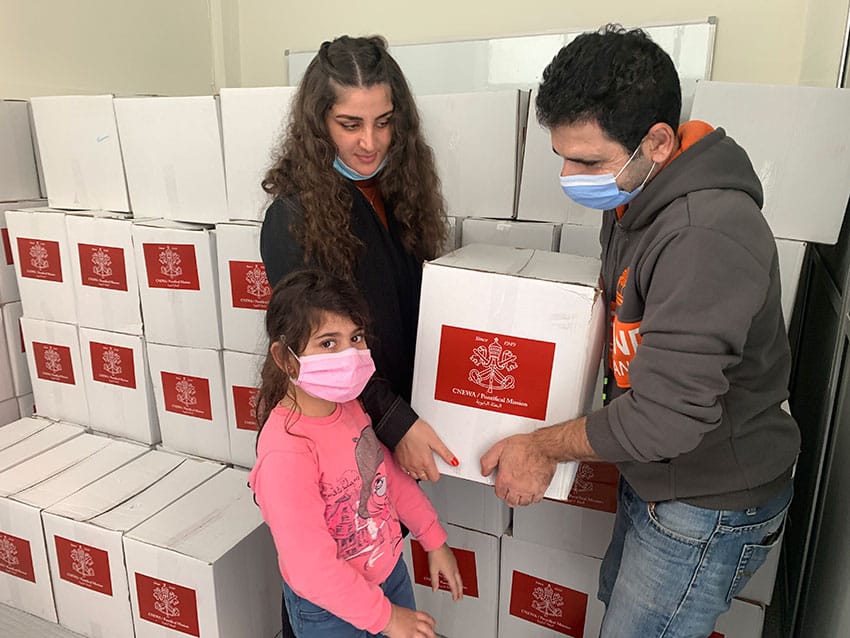
Lebanon is in the grip of a crisis with no end in sight and needs all the help that Australians can offer, representatives from Caritas Lebanon have warned.
Peter Mafouz is the youth and emergency projects officer for the aid agency of the Catholic Church based in the stricken country.
With Carmelite Father Michel Abboud, the president of Caritas Lebanon, Mr Mafouz visited Sydney and Melbourne this month to seek support for their work from Caritas Australia and Lebanese diaspora groups.
Speaking with The Catholic Weekly, Mr Mafouz said that things have gone from bad to worse since the Beirut port explosion in August 2020 killed more than 200 people, injured several thousand and left an estimated 300,000 people homeless.
“From the health crisis to the economic crisis, educational, social, everything is very bad and getting worse every day with no sign that things are getting better any time soon,” he said.”
From its head office in Beirut and around 100 centres across the country, Caritas Lebanon provides health and educational services, services for refugees and migrants, meal distribution and more.
Mr Mafouz said the most pressing issue is the loss of a generation of young people who are fleeing the country in search of better opportunities elsewhere.
“From the health crisis to the economic crisis, educational, social, everything is very bad and getting worse every day with no sign that things are getting better any time soon,” he said.
“Even if they can find a job, the average salary now because of the decline of the local currency is around $50 or $60 per month, which is not even enough to cover two days of expenses.

“Most of our youth are trying to leave or have already left. Last year alone more than 160,000 left the country trying to find jobs or continue their education outside of Lebanon.”
Even getting people to finish their schooling is a struggle, with public schools currently on strike and the private school sector also reaching breaking point.
Mr Mafouz said teachers in the public schools are paid around $30 or $40 per month, which doesn’t cover typical transport costs for them to get to their place of employment.
Meanwhile private schools are requesting tuition fees in US dollars in order to retain their staff, but not all families can afford to pay.
“People are already dying not from hunger but because they cannot afford medical treatment.”
“Without the support of the Lebanese diaspora living in Australia, the United States and Europe many in Lebanon are not able to live,” Mr Mafouz said.
“People’s families are sending them $100 or $200 per month so they can survive, while the local NGOs like Caritas Lebanon is supporting as many people as we can with hot meals and food kits. If that support stops, it will be a nightmare not worth thinking about.
“In the meantime, people are already dying not from hunger but because they cannot afford medical treatment. Lots of people are dying at hospital doors because they can’t buy their medicines, they can’t afford hospital treatment, they’re dying of things like diabetes complications and heart problems.”
He said that Caritas Lebanon is also working in small but important ways to keep people employed within the country by establishing a number of social enterprises including a food processing factory providing employment to 40 women, and an agricultural project providing support for farmers, low-cost vegetables and traineeship opportunities for young people.
